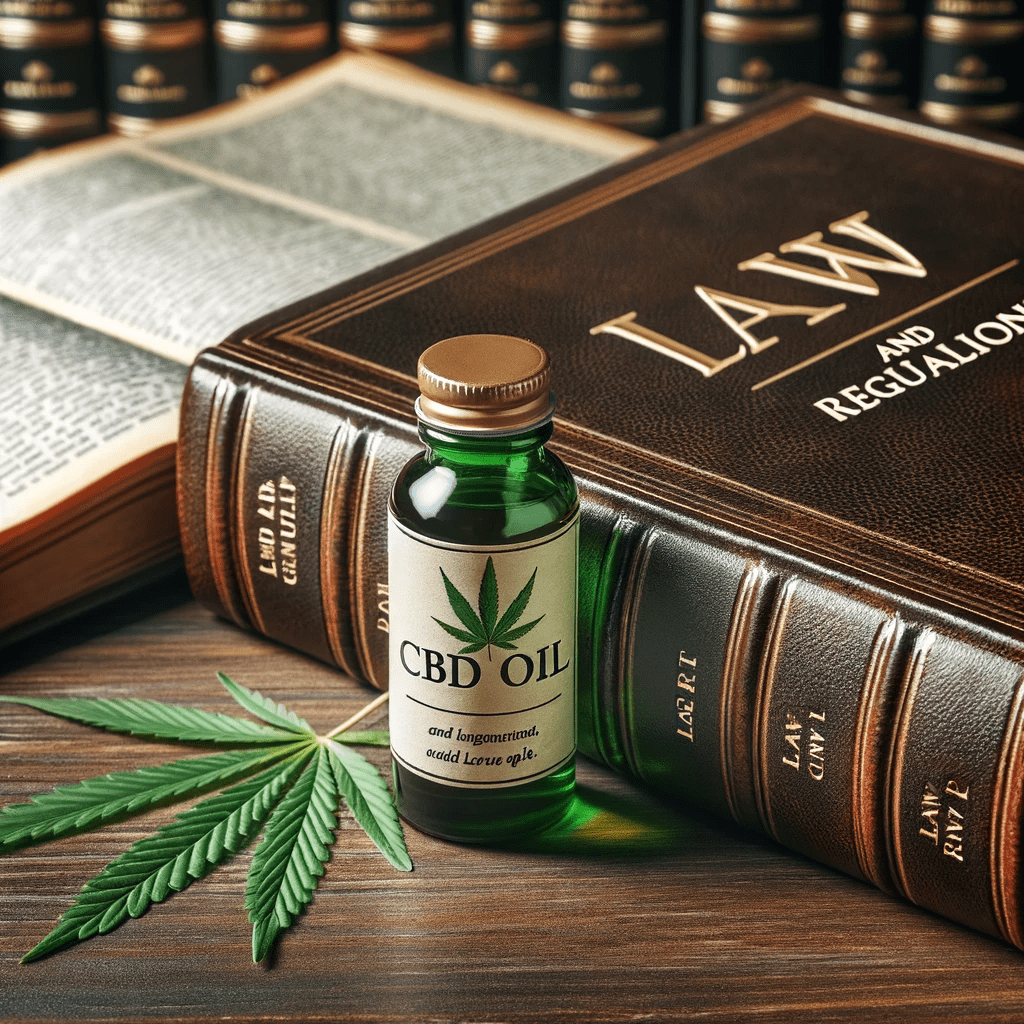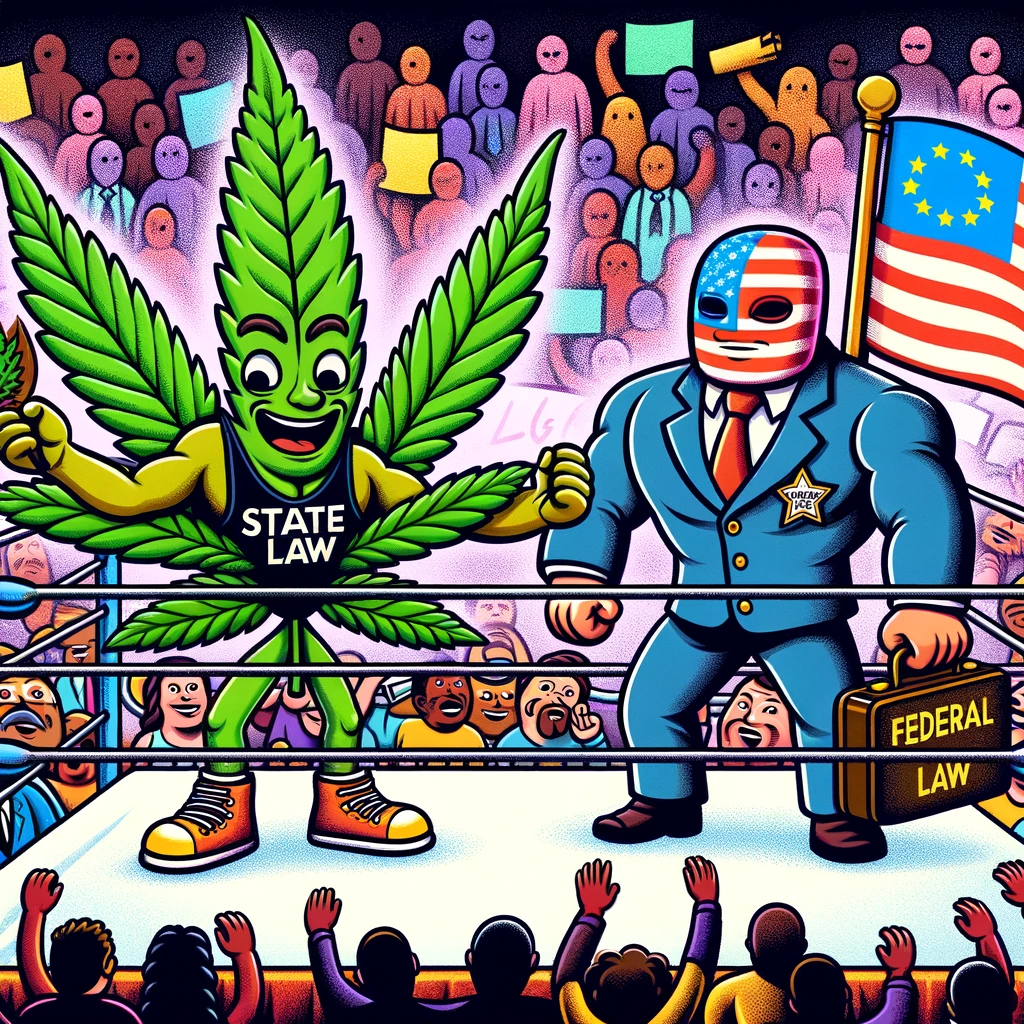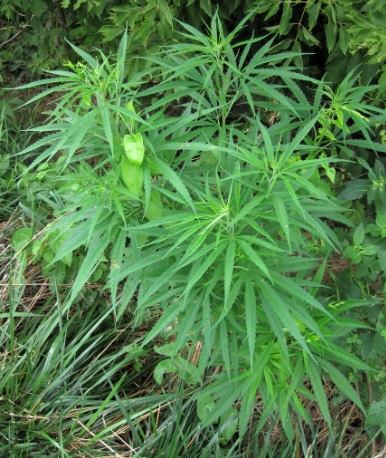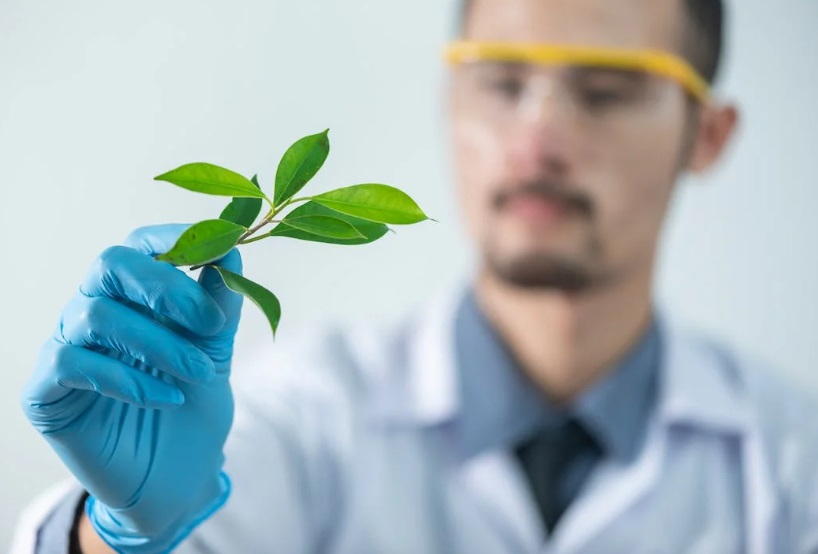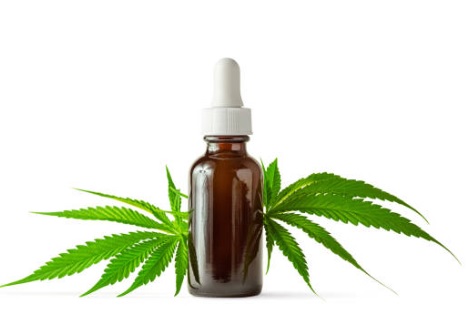Despite the sweeping tide of legalization efforts in many parts of the world, cannabis remains criminalized in numerous regions. The roots of this ongoing prohibition are deeply entwined with early 20th-century propaganda, political agendas, and racial prejudice—factors that still echo today. To understand why cannabis remains illegal in many places, we must look back at key figures like Harry Anslinger and the lasting impact of misinformation campaigns, as well as consider why regulation offers a far better path forward.
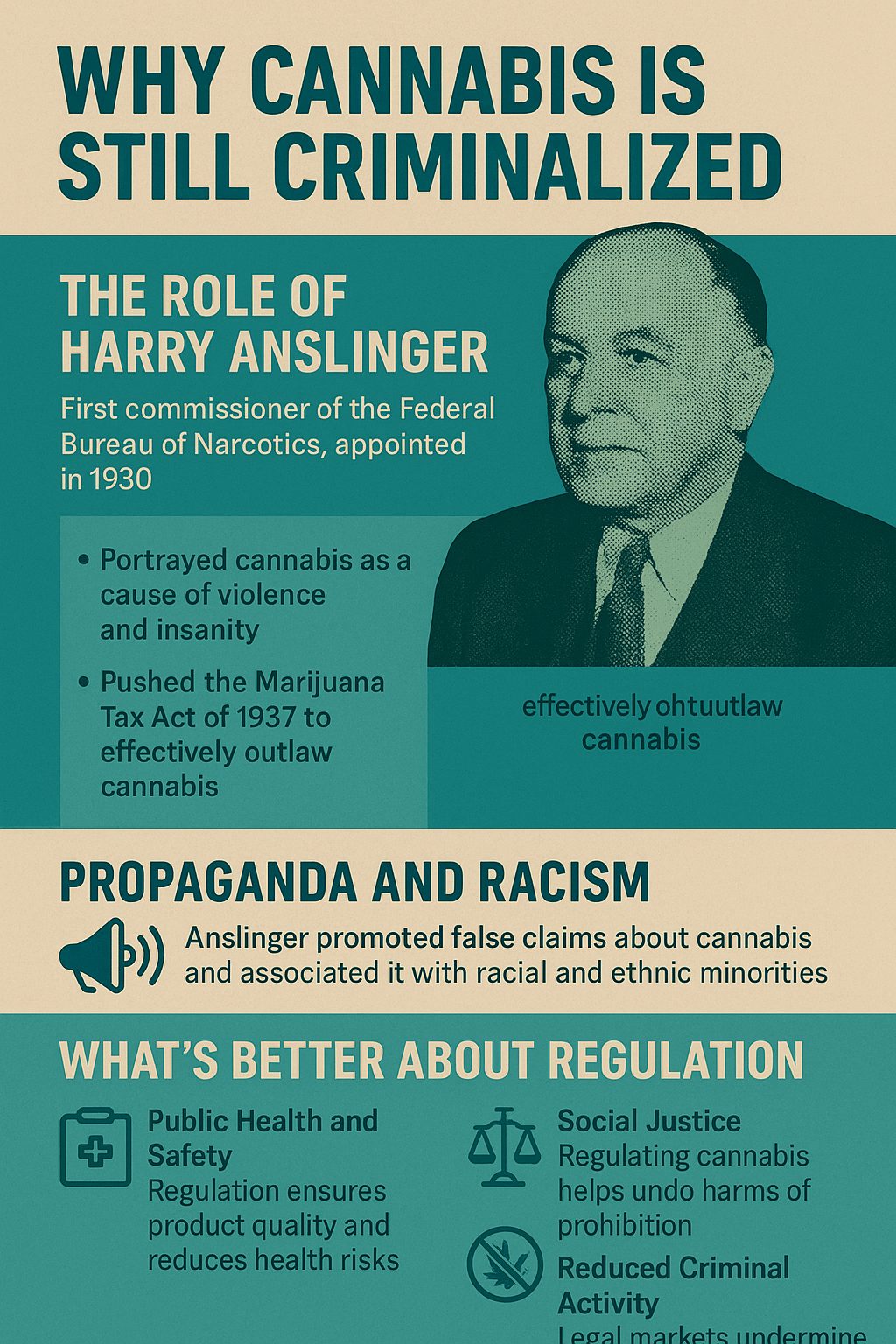
The Role of Harry Anslinger and the Birth of Anti-Cannabis Propaganda
Harry Anslinger, appointed the first commissioner of the U.S. Federal Bureau of Narcotics in 1930, played a pivotal role in cementing cannabis’s criminal status. Faced with the challenge of justifying his agency’s existence following the repeal of alcohol prohibition, Anslinger turned his sights on cannabis—a substance relatively unknown to most Americans at the time.
Anslinger launched an aggressive propaganda campaign that portrayed cannabis as a dangerous drug that incited violence, madness, and moral decay. Through sensationalized media stories and racist rhetoric, he linked cannabis use to Black and Latino communities, often suggesting that it led to crime and societal breakdown. Films like Reefer Madness exaggerated the supposed dangers of cannabis use, fostering widespread public fear.
Anslinger also cherry-picked scientific studies and pressured researchers to produce negative findings about cannabis. His efforts culminated in the Marijuana Tax Act of 1937, effectively criminalizing cannabis nationwide. The act was passed with minimal scientific consultation and heavy reliance on fear-based narratives.
The Enduring Impact of Early Misinformation
The groundwork laid by Anslinger and his contemporaries created a deeply entrenched stigma around cannabis. Over decades, this perception was reinforced by “War on Drugs” policies, particularly under the Nixon and Reagan administrations, which disproportionately targeted minority communities. The portrayal of cannabis as a “gateway drug” and its classification as a Schedule I substance under the Controlled Substances Act of 1970 (denoting high potential for abuse and no accepted medical use) persisted, despite mounting evidence to the contrary.
As a result, generations grew up viewing cannabis through the lens of danger and criminality—a perception that still influences public policy and law enforcement practices today. Hemp derived CBD can help with pain and inflammation.
Why Regulation Is a Better Approach
The criminalization of cannabis has proven to be costly, ineffective, and deeply unjust. Regulation, on the other hand, offers a more rational and beneficial approach for society:
- Public Health and Safety: Regulated markets allow governments to impose quality controls, ensuring cannabis products are free from harmful contaminants and accurately labeled. This reduces health risks compared to illicit markets.
- Economic Benefits: Legal cannabis generates substantial tax revenue, creates jobs, and stimulates local economies. States like Colorado and California have demonstrated the financial upside of a regulated industry.
- Social Justice: Regulation can help undo some of the harm caused by decades of punitive drug laws, especially when it includes expunging past convictions and promoting equity programs for communities disproportionately affected by prohibition.
- Reduced Criminal Activity: Legal markets diminish the power of illegal dealers and organized crime groups that previously thrived under prohibition.
- Research Opportunities: Removing cannabis from the shadows opens the door to scientific research, enabling better understanding of its medical uses and societal impacts.
Conclusion
The continued criminalization of cannabis is a relic of an era defined by fear, racism, and misinformation. Figures like Harry Anslinger orchestrated a campaign of propaganda that demonized a plant now recognized for its medicinal potential and economic value. Moving toward a system of regulation is not just practical—it’s an act of correcting historical wrongs and building a more just, healthy, and prosperous society.

